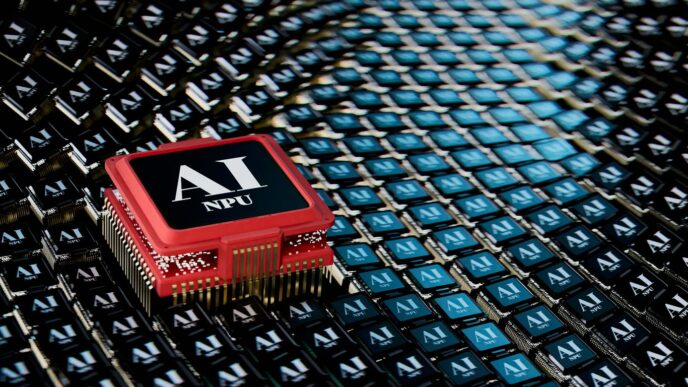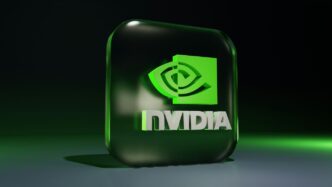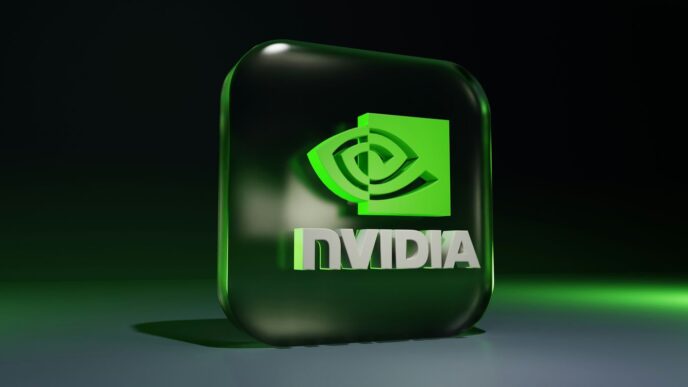Thinking about what is the best quantum computing stock to buy right now? It’s a question on a lot of investors’ minds. Quantum computing is moving pretty fast, going from a lab thing to something companies are actually using. Big money is being invested, and some companies are landing real contracts. It feels like a big deal, kind of like when AI started taking off. But, it’s still pretty new, and that means there’s risk. So, picking the right stock is important if you want to get in on this without losing your shirt. Let’s look at some of the players.
Key Takeaways
- IonQ is a strong contender with its trapped-ion tech, showing good performance and securing contracts, making it a potential high-reward, high-risk pick.
- Rigetti Computing is another pure-play company focusing on superconducting chips and cloud services, also showing significant stock growth and partnerships.
- Big tech companies like IBM, Alphabet (Google), and Microsoft are investing heavily in quantum computing, offering a less risky way to get exposure through their broader businesses.
- Exchange-Traded Funds (ETFs) like the Defiance Quantum ETF and VanEck Quantum Computing Fund provide a way to invest in a basket of quantum-related companies, spreading out the risk.
- Investing in quantum computing stocks is speculative due to the technology’s early stage, potential for high volatility, and the fact that many companies are not yet profitable.
1. IonQ
When you look at the companies trying to make quantum computers a reality, IonQ (ticker: IONQ) is definitely one to watch. They’re using a method called trapped-ion qubits. Think of it like trapping tiny charged atoms with electricity and using their states to do calculations. A big plus here is that this approach doesn’t need super-cold temperatures like some other quantum technologies, which could make things simpler and cheaper down the line. IonQ has even hit some impressive marks for how accurate their quantum gates are, which is a pretty big deal in this field.
What’s also interesting is how they’re making their systems available. Instead of selling the whole machine, they let people access their quantum computers through major cloud services. This "quantum computing-as-a-service" model means more people can experiment with quantum algorithms without needing to build their own complex hardware. It’s a smart way to get their technology out there and build a customer base. While they’re still working on becoming profitable, IonQ has shown some solid revenue growth recently. This makes them a compelling, albeit speculative, choice for investors interested in the trapped-ion approach.
Of course, investing in any quantum computing company right now comes with risks. The technology is still pretty new, and making qubits work perfectly without errors is a huge challenge. Most of these companies are spending a lot on research and development, so they’re not making money yet. Plus, the stock prices can be all over the place. For example, IonQ has seen some market challenges recently. Still, if trapped-ion technology proves to be the way forward, IonQ could be in a good spot. It’s worth keeping an eye on their progress and how they’re expanding their reach, like their recent deal to deploy systems in Europe.
2. Rigetti Computing

Rigetti Computing is another company really pushing the boundaries in the quantum space. They’re working with superconducting qubits, which is a bit different from some other approaches. Think of it like building with specialized Lego bricks – each one has to be just right.
What’s interesting about Rigetti is their focus on a "chiplet" design. The idea is to build larger, more powerful quantum processors by connecting smaller, specialized chips together. It’s a way to scale up without having to build one giant, super-complex chip from scratch. They’ve already shown off systems with a decent number of qubits, like their 36-qubit processor that managed to get pretty good accuracy, cutting down on errors compared to older versions. They’re aiming for systems with over 100 qubits soon, and eventually, much bigger ones for actual commercial use.
Rigetti also has a cloud platform, so people can access their quantum computers remotely. This is pretty standard now, but it’s how they get their technology into the hands of researchers and businesses. They’ve even landed some contracts with the U.S. Air Force, which shows some government interest.
However, like many companies in this field, Rigetti is still in the early stages. The revenue numbers aren’t huge yet, and the stock can be quite a rollercoaster. Analysts are watching closely to see if they can hit their development milestones, as missing them could lead to some significant price drops. It’s a company with a clear technical path, but it comes with the usual risks of investing in cutting-edge technology.
3. D-Wave Quantum
D-Wave Quantum (QBTS) is a company that’s been around for a while, focusing specifically on quantum annealing. Unlike some other players who are building universal gate-based quantum computers, D-Wave’s approach is all about solving complex optimization problems. Think of it like having a specialized tool for a very specific, but really hard, job. They’ve been making some noise lately, too.
Their stock has seen some pretty significant gains in 2025, making them one of the better performers in the quantum space this year. This surge seems to be partly driven by real-world deals, like a recent contract with Swiss Quantum Technology for their Advantage2 system in Europe. Landing these kinds of contracts shows they’re not just talking about theory; they’re actually getting systems out there and finding customers. It’s a big deal in a field where long development cycles are the norm.
Here’s a quick look at what sets them apart:
- Specialized Hardware: D-Wave uses quantum annealers, which are designed to find the best solution among many possibilities for optimization tasks. This is different from the general-purpose quantum computers others are building.
- Commercial Traction: They’ve managed to secure actual customer contracts, which is a strong indicator of market interest and their ability to deliver.
- Cloud Access: Through their Leap platform, users can access D-Wave’s quantum resources, making the technology available without needing to own the hardware directly.
However, it’s not all smooth sailing. D-Wave’s business model, which relies heavily on direct system sales and cloud access, can lead to revenues that jump around a bit. This is different from companies that might have broader cloud reach, which can sometimes smooth out income over time. Analysts have given QBTS stock an average rating of "Strong Buy," but the 12-month stock price target suggests a potential decrease from its current value, so it’s worth keeping an eye on. Investing in any quantum company is a gamble, and D-Wave is no exception, but their focused approach to optimization problems is definitely something to watch as the quantum field matures.
4. IBM
When you talk about quantum computing, you can’t really skip over IBM. They’ve been in this game for a long, long time, practically since the beginning. We’re talking decades of work here, not just a few years. They’ve even managed to pull in about a billion dollars in bookings related to their quantum efforts, which is pretty significant.
IBM has this roadmap, you know, a plan for where they’re going with quantum. It’s pretty ambitious, aiming for fully functional, fault-tolerant quantum computers within the next ten years. They’re not just building the machines; they’re also looking at how quantum can work alongside regular computers, which is a smart move. They even showed how this combo could speed up things like bond trading, working with banks on it.
IBM expects to show that quantum computers can actually outperform regular computers on a real-world task by the end of 2026. By 2029, the big goal is to have the first fault-tolerant quantum computer ready. This is a huge deal because it tackles the problem of errors in quantum bits, which is a major hurdle right now. After that, they’re talking about scaling up to 2,000 qubits by 2033.
Here’s a quick look at their planned milestones:
- 2026: Demonstrate quantum advantage on a real-world task.
- 2029: Build the first fault-tolerant quantum computer.
- 2033: Scale up to 2,000 qubits.
Of course, a roadmap isn’t a crystal ball, but IBM’s history in this field gives you some reason to believe they might actually pull it off. The quantum market is expected to get massive, and IBM is positioning itself to be a big player. Plus, for investors, IBM shares offer a dividend, which is nice to have while waiting for these quantum advancements to fully pay off.
5. Quantum Computing Inc.
Quantum Computing Inc. (QUBT) is another player in the quantum space, focusing on quantum annealing and optimization problems. The company has seen some movement in its stock price, with gains in 2025 and some pretty wild spikes at times. It’s the kind of stock that definitely keeps you on your toes.
They’re working on technology that could help solve really complex problems, the kind that regular computers just can’t handle. Think about figuring out the best way to route delivery trucks across a huge city or optimizing financial portfolios – that’s the sort of thing QUBT is aiming for.
Here’s a quick look at some points about QUBT:
- Focus: Primarily on quantum annealing and optimization solutions.
- Recent Activity: Saw a jump after JPMorgan announced its quantum investment plans, showing how market news can really move these smaller quantum stocks.
- Challenges: Like many in this field, QUBT faces the reality of high cash burn for research and development. There’s also the risk of dilution, which happened recently when they announced a large private share offering, causing the stock to drop. This highlights the speculative nature of investing in companies still developing their core technology.
It’s important to remember that Quantum Computing Inc., like many pure-play quantum companies, is still in the early stages of development and isn’t profitable yet. This means investing in QUBT is a high-risk, high-reward proposition. You’re betting on their technology maturing and finding significant commercial success down the line.
6. Alphabet/Google
When you think about big tech companies getting into quantum computing, Google, or Alphabet as its parent company, is definitely one of the names that comes up. They’ve been working on this stuff for a while now, and they’ve made some pretty interesting progress.
One of the big things they’ve been focused on is building their own quantum processors. They call their current generation the ‘Sycamore’ processor, and it’s been used in experiments to show quantum computers can do certain tasks way faster than even the best regular computers. It’s a big deal, but it’s still mostly for research.
What’s next for Google in quantum? Well, they’re not just building hardware. They’ve also got a whole team working on the software side of things, trying to figure out how to actually use these machines for real-world problems. Think about things like drug discovery, materials science, or even improving AI. They’re aiming to have useful quantum computers for commercial applications by around 2030. That’s a pretty ambitious target, and it’s something to keep an eye on.
Here’s a quick look at what they’re up to:
- Hardware Development: Building increasingly powerful quantum processors like Sycamore.
- Software & Algorithms: Creating the tools and methods to actually run computations on quantum computers.
- Research & Applications: Exploring how quantum computing can solve complex problems in science and industry.
It’s a long road, and there are still a lot of hurdles to overcome, but Google is putting a lot of resources into it. They’re one of the major players to watch if you’re interested in where quantum computing is headed.
7. Microsoft

Microsoft is another big player in the quantum computing space, and they’re taking a pretty interesting approach. Instead of just building more qubits, they’re really focused on something called topological qubits. Think of it like trying to build a more stable kind of quantum bit that’s less prone to errors. Their work is happening under the umbrella of Azure Quantum, and they’re exploring what they call the Majorana 1 architecture.
It’s not just about the hardware, though. Microsoft is also building out its Azure Quantum cloud platform. This is where researchers and developers can access quantum hardware from different providers, including their own experimental systems. It’s kind of like a marketplace for quantum computing power and tools.
Here’s a quick look at what they’re doing:
- Focus on Topological Qubits: Aiming for more stable and error-resistant quantum bits.
- Azure Quantum Platform: Providing cloud access to various quantum hardware and software tools.
- Hybrid Approaches: Exploring how quantum computers can work alongside classical computers for complex problems.
Microsoft’s long-term vision is to integrate quantum computing into their existing cloud services, making it accessible to a wider range of businesses and researchers. It’s a massive undertaking, and while they might not be selling quantum computers directly to consumers anytime soon, their work on the foundational technology and the cloud infrastructure is pretty significant for the future of the field.
8. Defiance Quantum ETF
Alright, so you’re looking to get a piece of the quantum computing pie without picking individual stocks? That’s where something like the Defiance Quantum ETF, or QTUM, comes in. Think of it as a basket holding a bunch of companies involved in quantum tech. It’s a way to spread your risk around, which is probably a good idea given how new and, let’s be honest, a bit wild this whole quantum computing scene is.
This ETF, which started up back in September 2018, tracks a specific index focused on companies that are actually doing the research and development in quantum computing. It’s not just a few big names either; it holds a pretty decent number of stocks, around 78 according to some reports, and it includes companies like D-Wave Quantum. The fee for this is about 0.40%, which isn’t too bad when you consider the alternative of trying to research and buy dozens of individual stocks yourself.
So, why consider an ETF like QTUM?
- Diversification: You get exposure to a range of companies, from those building the actual hardware to those developing the software and applications.
- Reduced Individual Stock Risk: If one company in the ETF stumbles, the others can potentially pick up the slack, smoothing out your overall investment.
- Professional Management: While it’s an ETF and tracks an index, there’s still a structure in place that aims to represent the quantum computing sector.
It’s a solid option for investors who want to bet on the quantum future but prefer not to put all their eggs in one very speculative basket. Of course, even with diversification, quantum computing is still a frontier technology. There’s a lot of excitement, but also a lot of uncertainty about when we’ll see widespread commercial use and which technologies will win out. Keep in mind that ETFs like this can still be quite volatile, mirroring the ups and downs of the underlying companies. It’s definitely something to look into if you’re building a broader tech portfolio and want a slice of the quantum action.
9. VanEck Quantum Computing Fund
For those looking to get a piece of the quantum computing pie without picking individual stocks, a fund might be the way to go. The VanEck Quantum Computing Fund is one such option. It’s listed in London and aims to give investors exposure to companies involved in quantum computing. This means it doesn’t just stick to the "pure-play" companies that are solely focused on quantum tech; it also includes bigger tech players that are investing heavily in the field.
This fund has shown some positive movement, being up 10.9% year-to-date. However, it’s important to remember that this is still a very new and developing area. Like many funds in emerging tech, it comes with a 0.55% expense ratio, which is something to consider when looking at potential returns.
Here’s a quick look at what you might find in a fund like this:
- Pure-Play Quantum Companies: These are businesses whose main focus is developing quantum computing hardware or software. Think companies like IonQ or Rigetti.
- Established Tech Giants: Large corporations like IBM, Google, or Microsoft are also pouring resources into quantum research. They offer a different kind of stability compared to smaller, more speculative companies.
- Component and Service Providers: Companies that supply parts or services crucial for quantum development could also be part of the mix.
Investing in a fund can help spread out the risk, but it’s still a speculative investment. The quantum computing field is exciting, but it’s also unpredictable. Keep in mind that the technology is still maturing, and it could be a while before we see widespread commercial use.
10. ARK Autonomous Technology & Robotics ETF
If you’re looking to get a piece of the quantum computing action without picking individual stocks, ETFs can be a good way to go. The ARK Autonomous Technology & Robotics ETF (ARKQ) is one such option that’s been making waves. This fund focuses on companies involved in autonomous technology, robotics, and artificial intelligence, and quantum computing fits right into that picture as a future driver of these fields.
ARKQ has shown some impressive performance, with a 50% gain in 2025 and a 93% jump over the past year. It’s not just about quantum, though. The ETF holds a basket of companies that are innovating in areas like self-driving cars, 3D printing, and energy storage, all of which are expected to be transformed by advancements in computing power.
Here’s a look at what makes ARKQ interesting for investors looking at the future of technology:
- Broad Exposure: It gives you a stake in a variety of companies pushing the boundaries of automation and AI, not just pure quantum plays.
- Growth Focus: ARK Invest, the manager, is known for its focus on disruptive innovation, so they’re looking for companies with high growth potential.
- Synergistic Technologies: The ETF recognizes that quantum computing won’t exist in a vacuum; it will work alongside AI and robotics to create new possibilities.
While ARKQ offers a diversified approach, remember that ETFs focused on emerging technologies can be quite volatile. It’s worth checking out their latest holdings to see which specific companies are driving their performance and how much weight they give to quantum-related businesses.
So, What’s the Takeaway?
Alright, so we’ve talked a lot about quantum computing, and it’s clear this isn’t just science fiction anymore. Things are really starting to happen in 2025, with real money flowing in and actual deals being made. It’s exciting, for sure. But let’s be real, it’s still pretty early days. Most of these companies are burning through cash, and the tech itself is fragile. Picking the ‘best’ stock is tough, and honestly, it’s probably a mix of keeping an eye on the big players like IonQ and Rigetti, maybe dipping a toe into some ETFs for safety, and definitely not betting the farm. It’s a long game, and things could get bumpy, so just be smart about it.
Frequently Asked Questions
Why is everyone talking about quantum computing stocks now?
Quantum computing is moving from science experiments to real-world uses. Big companies are investing, and new deals are being made, showing that this technology is becoming more practical. Experts think it could solve problems regular computers can’t, making it a hot area for investors looking for future growth, especially since 2025 has seen some exciting developments.
What makes a quantum computing company a good investment?
A good quantum company shows it’s making money or signing important deals, not just doing research. It also needs to have enough cash to keep its projects going and have a unique technology that stands out. Strong partnerships with other companies or government groups also help a lot.
Are quantum computing stocks risky?
Yes, investing in quantum computing stocks is quite risky. The technology is still new and can be tricky to work with. Many of these companies aren’t making profits yet and spend a lot on research. Their stock prices can jump around a lot, and there’s always a chance that bigger tech companies could become strong competitors.
What’s the difference between companies like IonQ and D-Wave?
IonQ focuses on ‘trapped-ion’ technology, which works well and is easier to manage because it doesn’t need extreme cold. D-Wave specializes in ‘quantum annealing,’ which is great for solving specific kinds of puzzles, like finding the best way to do something. They have different ways of building their quantum computers.
Should I invest in big tech companies like IBM or Google for quantum computing?
Investing in big tech companies like IBM, Google, or Microsoft can be a safer way to get involved in quantum computing. They have lots of money and are already successful in other areas. They can afford to invest heavily in quantum research as part of their larger business, which might mean less risk compared to smaller, specialized quantum companies.
What are quantum ETFs, and are they a good option?
Quantum ETFs (Exchange Traded Funds) are like baskets that hold stocks from many different quantum computing companies. This is a good way to spread your risk instead of betting on just one company. ETFs like the Defiance Quantum ETF or the VanEck Quantum Computing Fund offer a way to invest in the whole quantum sector without picking individual stocks.














